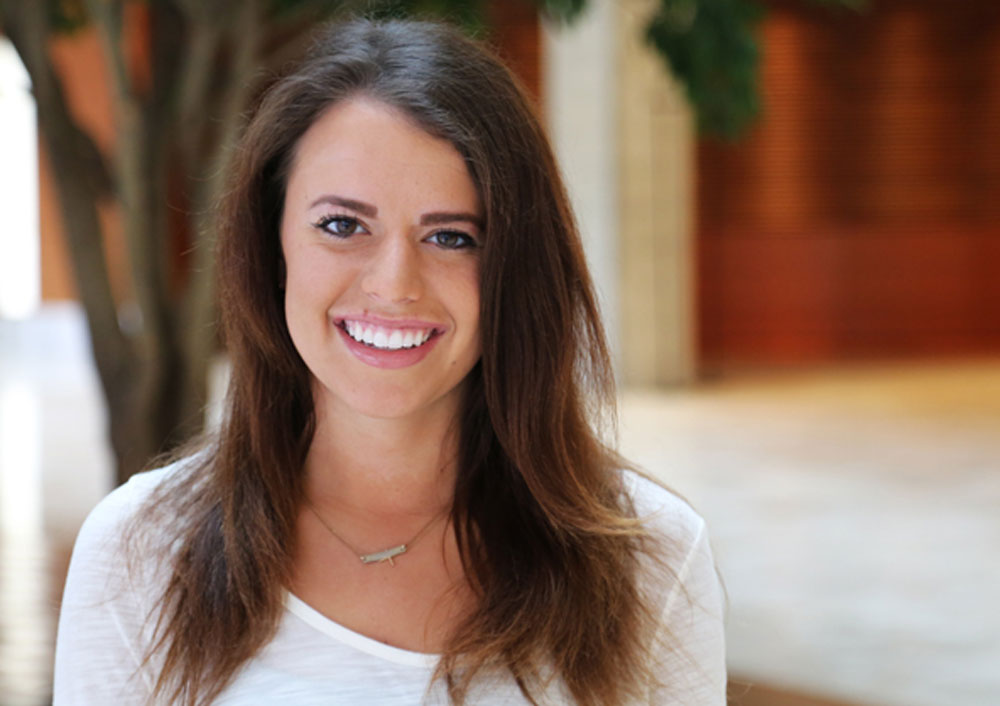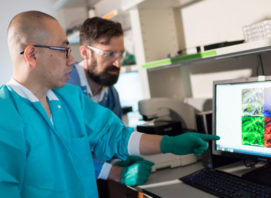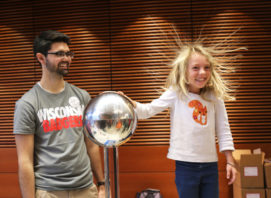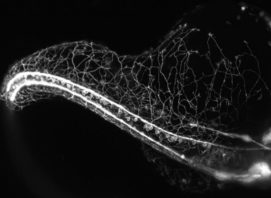Student launches nonprofit to support college students with physical illness
For young adults, the transition from high school to college and a more independent lifestyle can be a challenging new experience. Tack on a physical illness and mounting medical bills and the traditional stressors of college life grow exponentially.
Shannon Strader, a senior graduating this month from the University of Wisconsin-Madison, founded Bella Soul, a nonprofit organization, to support full-time college students struggling with a physical illness.
“With Bella Soul, or beautiful soul, it’s for students to share their story, what they struggled with and try to inspire others,” says Strader.
Shannon Strader with her twin sister Lauryn.
As a senior in high school, Strader was diagnosed with a rare kidney and vascular disease, the symptoms of which had plagued her entire life. In the summer between high school and college, doctors at the Mayo Clinic performed a novel nine-hour surgery to treat the disease.
Strader then moved from her hometown of Metamora, Ill., to attend UW-Madison and study neurobiology and regenerative medicine. She has been working in the regenerative biology lab at the Morgridge Institute for Research, led by renowned stem cell scientist James Thomson, since her freshman year.
“I came to Madison to work in Jamie’s lab — it was a lifelong dream,” says Strader. “My twin sister had severe cerebral palsy, so at a young age I was initiated into the hospital and all that came with it. The avenue I found hope in was research.”
Strader’s work at the Morgridge Institute, and, later, her final neurobiology thesis project, involved DNMT3B, a gene that plays an important part in embryonic development.
“Its function has been related to leukemia, brain tumors, all these different diseases that deal with blood or neural disorders,” says Strader. “I guess I was trying to link what happened to my sister and I together—because mine was a vascular problem and hers was more neural.”
“Shannon’s enthusiasm was infectious for everyone in the lab,” says Thomson. “I’m amazed by what she has accomplished as an undergraduate, both in the lab and in establishing Bella Soul. We’ve been lucky to have her around for the last four years.”
But while Strader had found her place in Madison, complications and additional surgeries continued to affect her physical health throughout her first years of college, and medical bills piled on top of tuition statements.
Strader had problems finding support and resources to manage the problems she was facing.
“The more I talked to other people about their experiences, the more I realized we had the same challenges,” Strader says. “Once you turn 18, you transition into being an adult and can get lost in the cracks. There’s just so much going on without time to advocate for yourself.”
Strader says she benefited from the McBurney Disability Resource Center, a disability services office on the UW-Madison campus. “They have wonderful advisors and were very helpful and supportive in the ways they could be,” she says.
Bella Soul originated as a forum for students with physical illness to share their stories and create a network of emotional support. The organization has since evolved to include financial scholarships to be used for school or medical expenses.
Shannon Strader (middle) at the 2014 Bella Soul gala with James Thomson and Jessica Antosiewicz-Bourget, both researchers in the Morgridge Institute for Research’s regenerative biology group.
Bella Soul received 501(c)(3) nonprofit status in August 2014 and held a late fall gala, co-sponsored by the McBurney Center, to celebrate the milestone. The 200 attendees included a mix of doctors, researchers, professors and students, as well as the 2014 Bella Soul scholarship recipient.
Strader says the gala, intended as an annual event, raised enough money to provide two more scholarships that will be awarded in early 2015. The plan is to expand Bella Soul and start chapters at other universities, as well as provide resources for hospitals to share with teenagers transitioning to college.
Strader will be participating in UW-Madison Winter Commencement ceremonies on Dec. 21 and hopes to eventually attend medical school. She plans to take the next year off to study the MCAT and take additional courses. Right now, her focus is on spreading the word that Bella Soul exists as a resource and a way for students to find support.
Current efforts have been supported by the work of Kathryn Mazack and Cathy Trueba of the McBurney Center and UW-Madison students Jamie Holt, Alex Ritger, Harris Sinsley and Lauren Wilmet.
To learn more about Bella Soul, visit http://livebellasoul.org.



